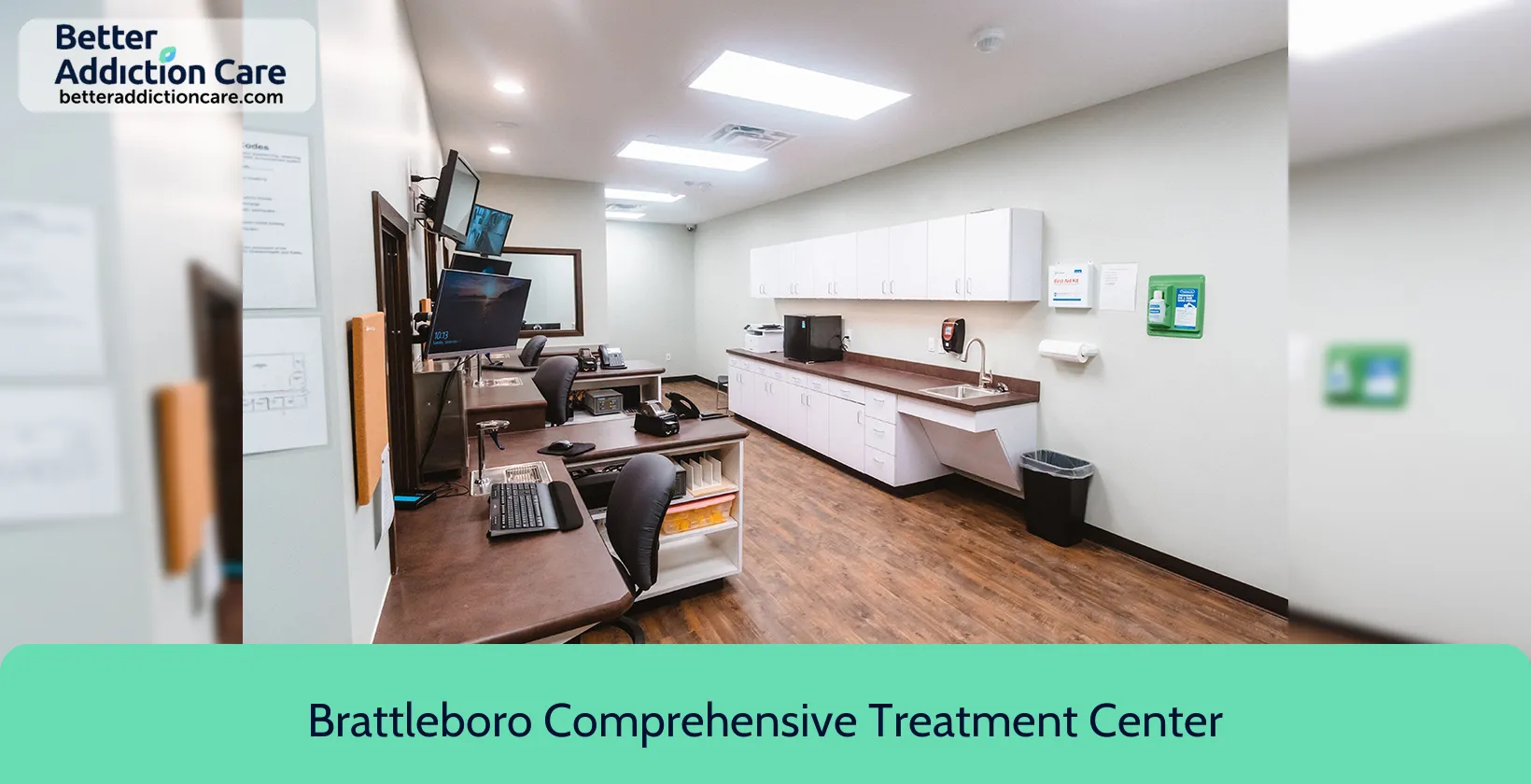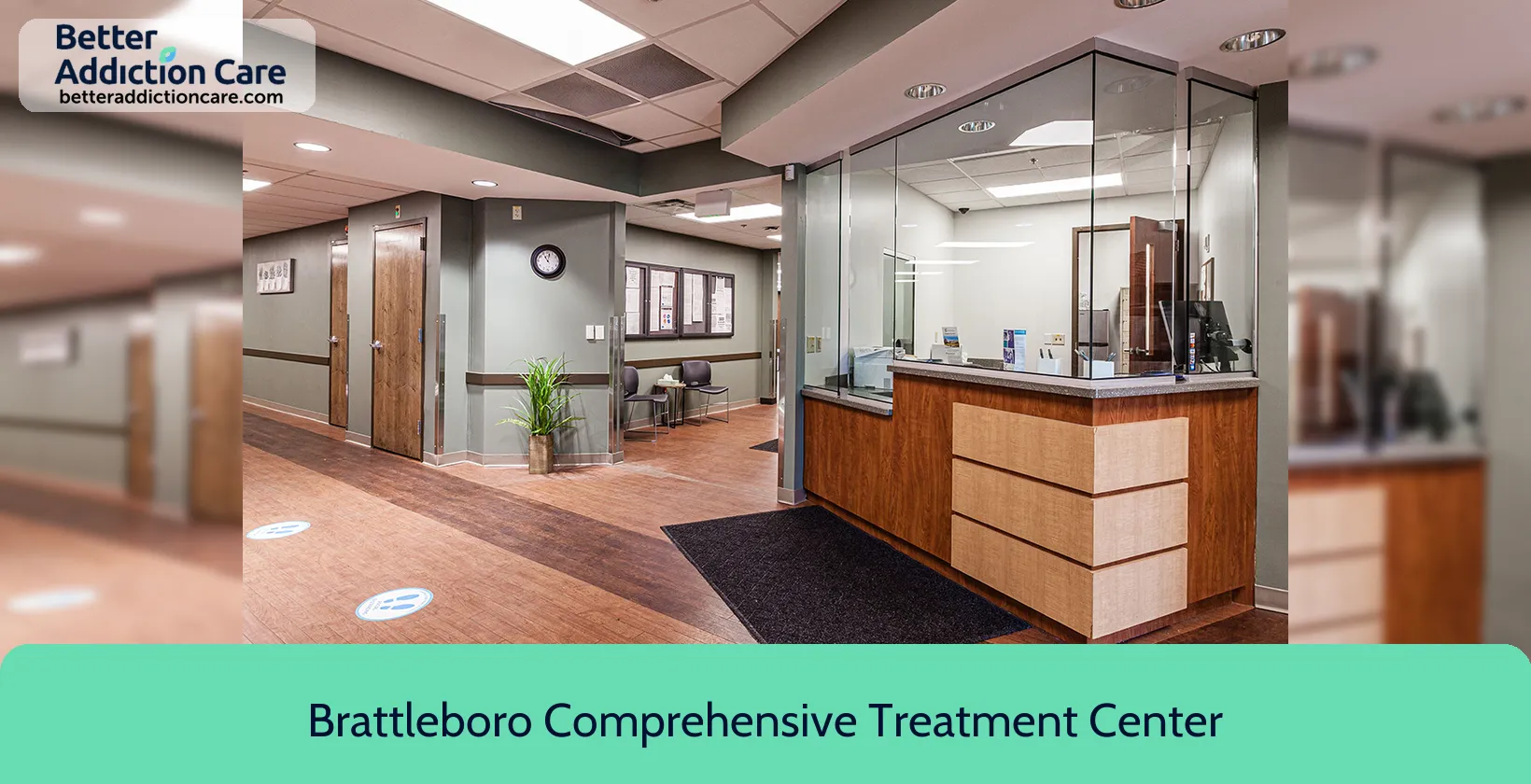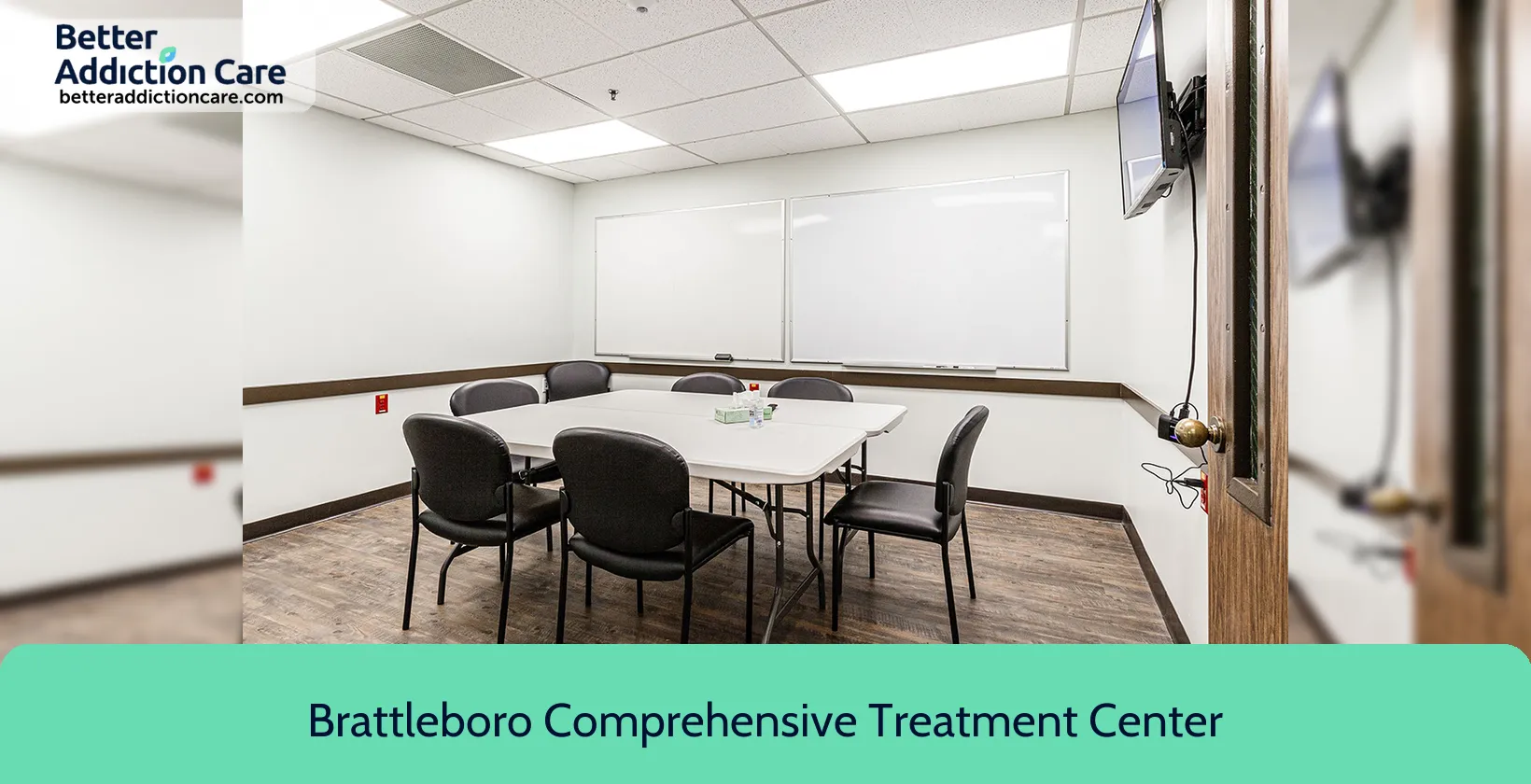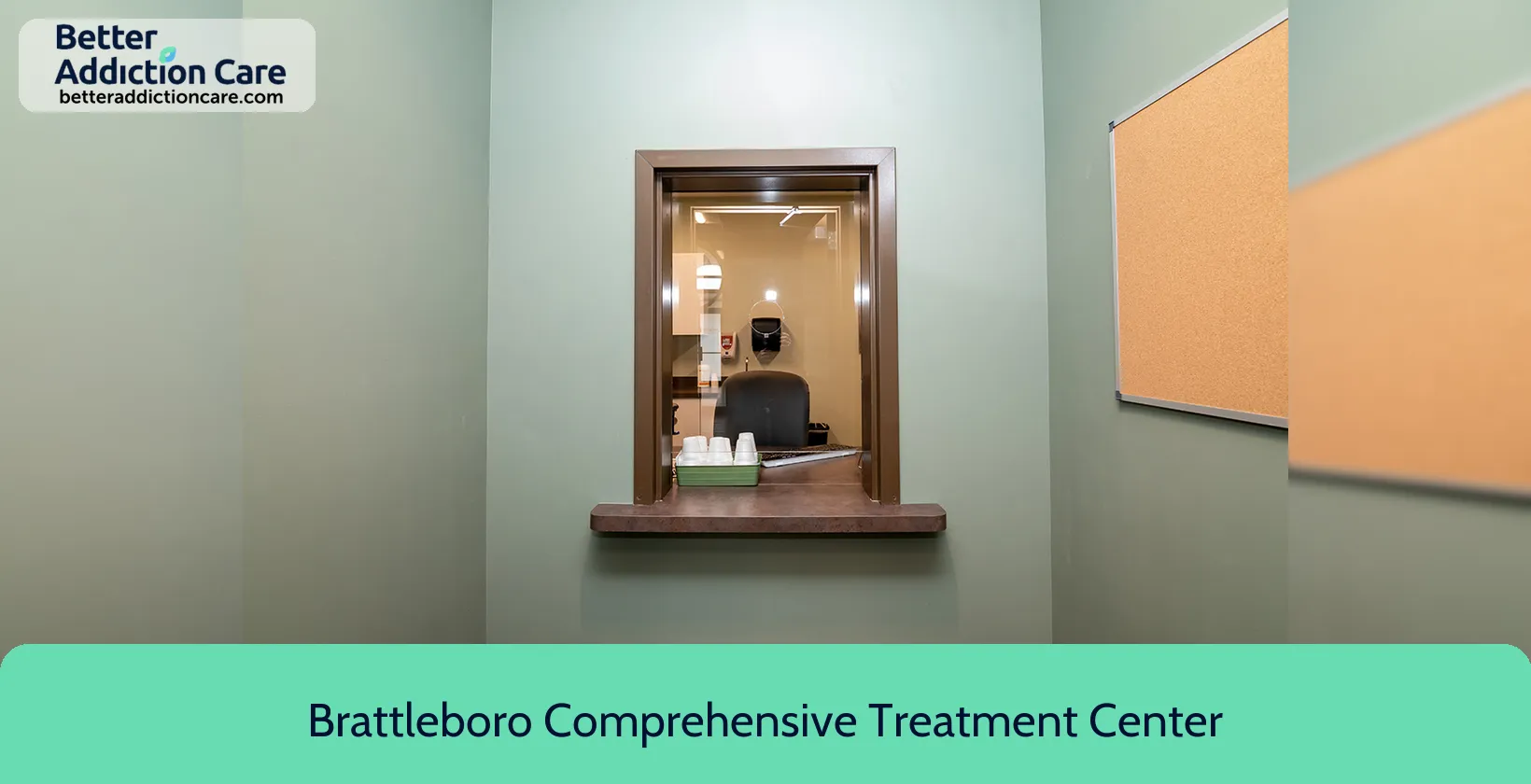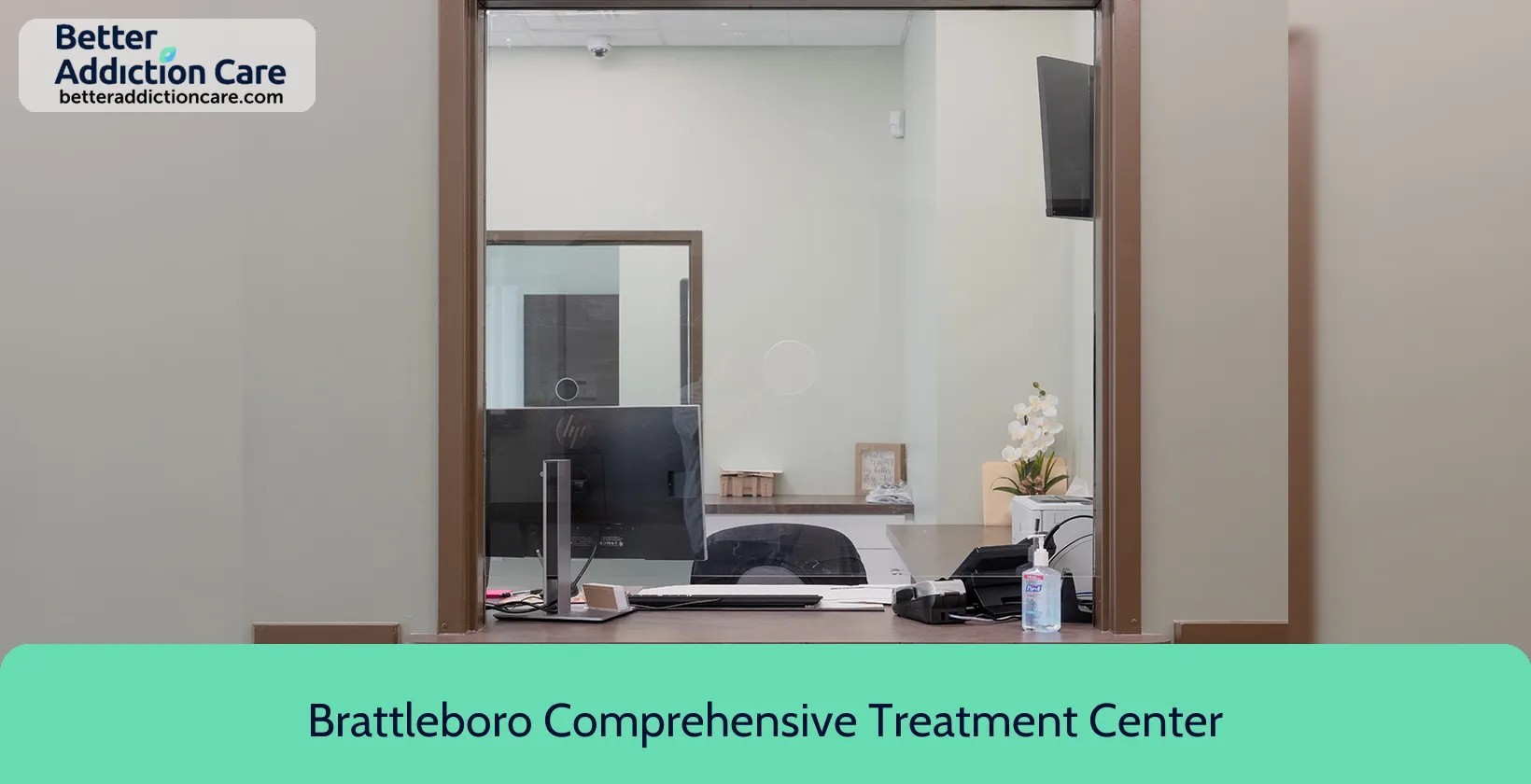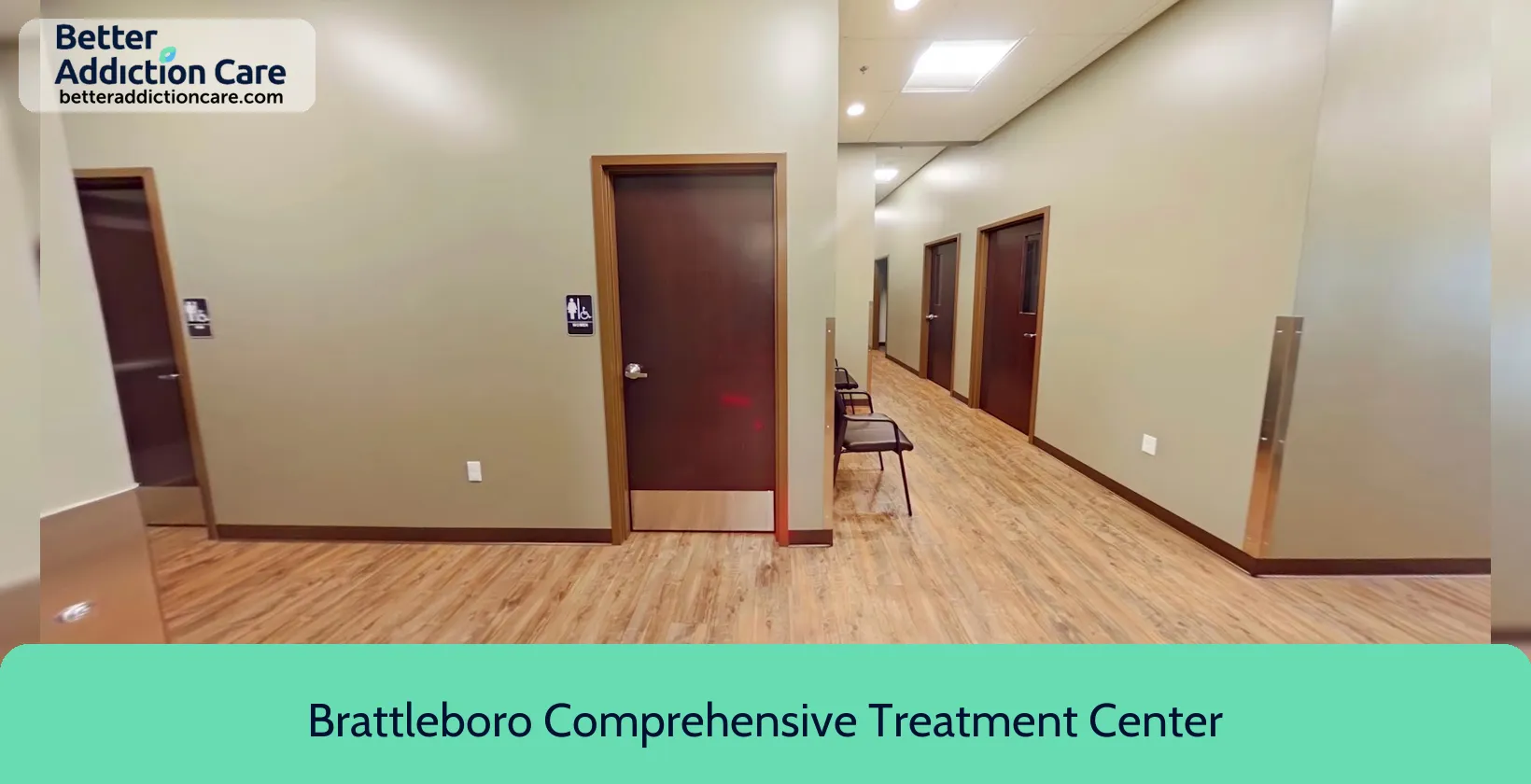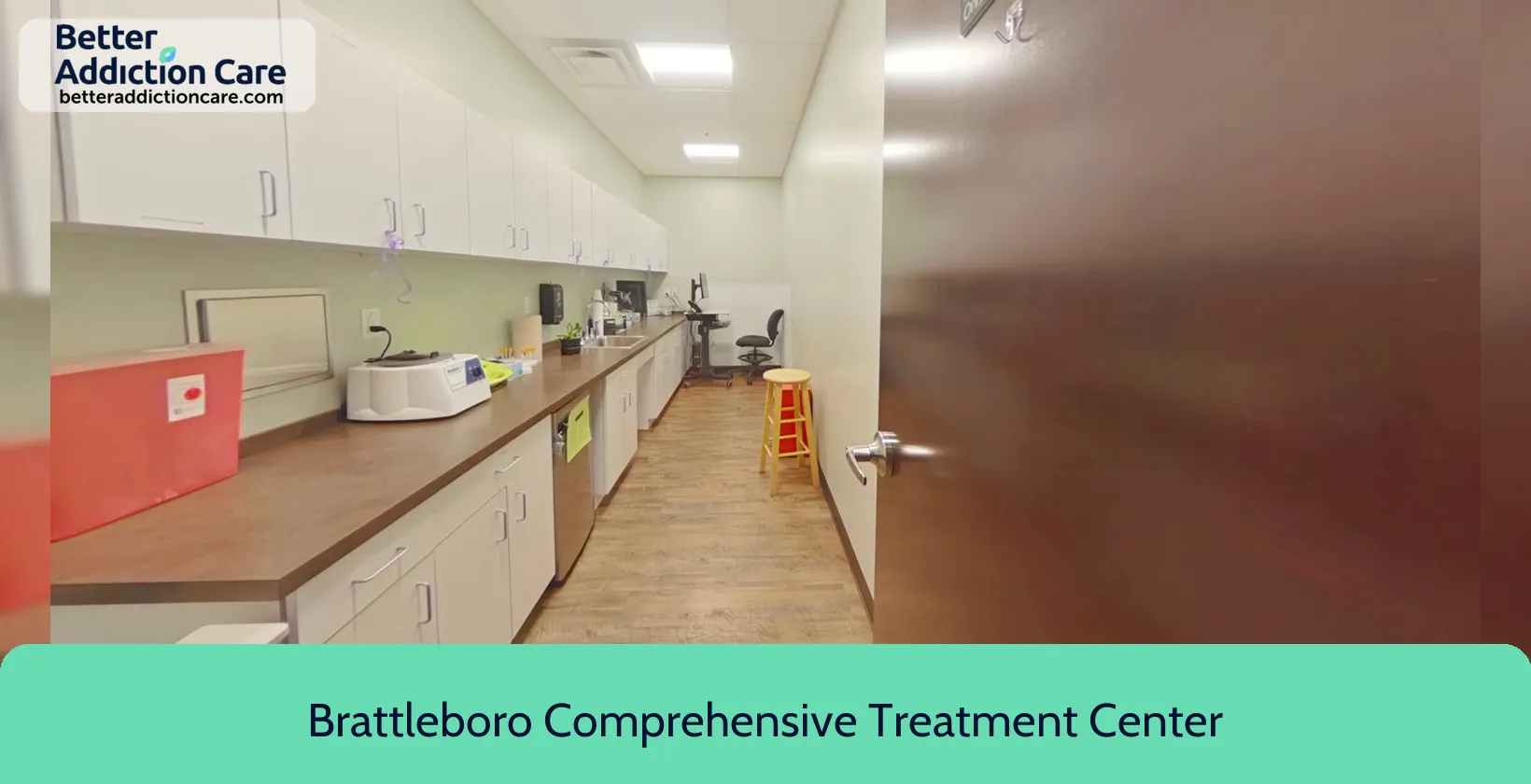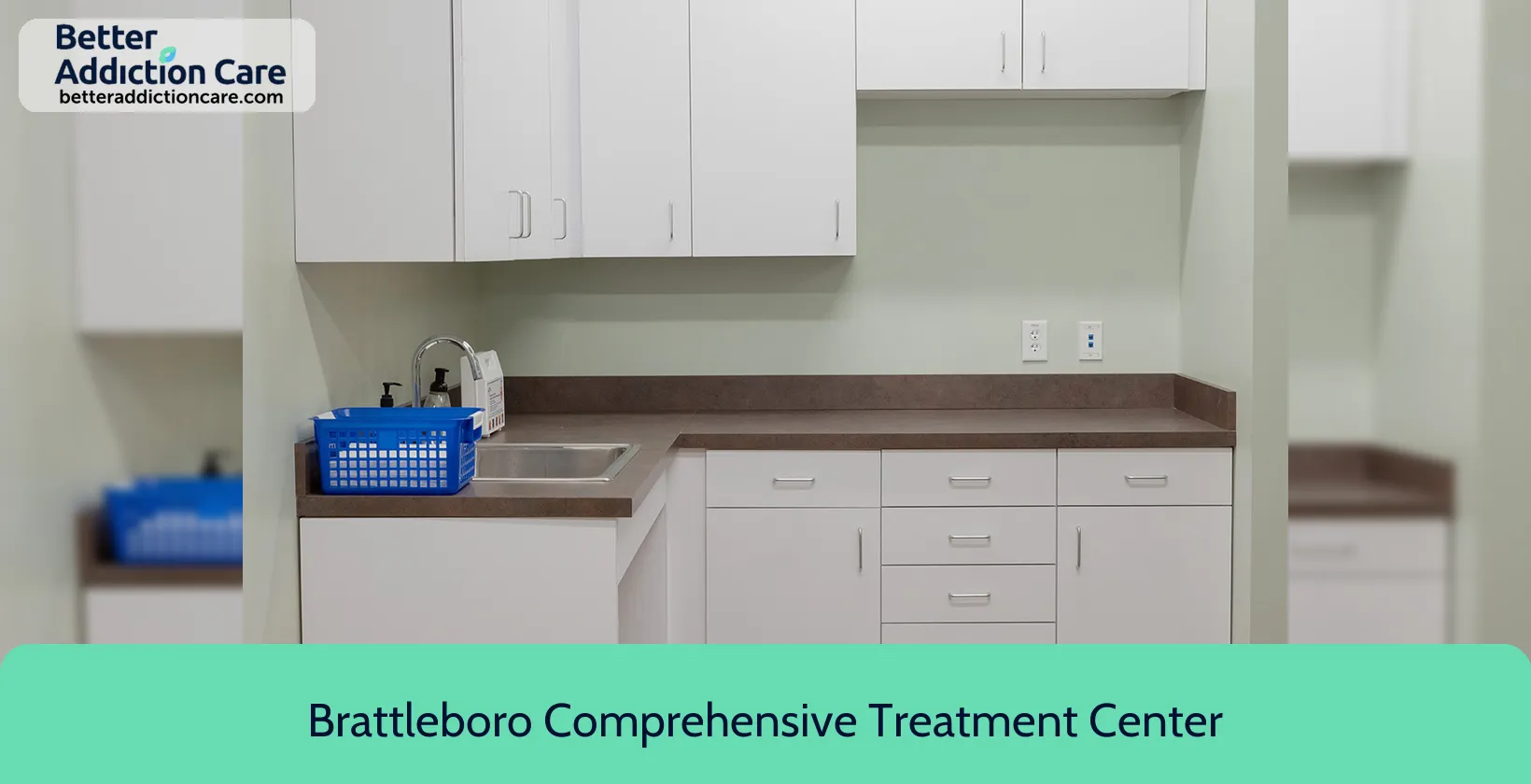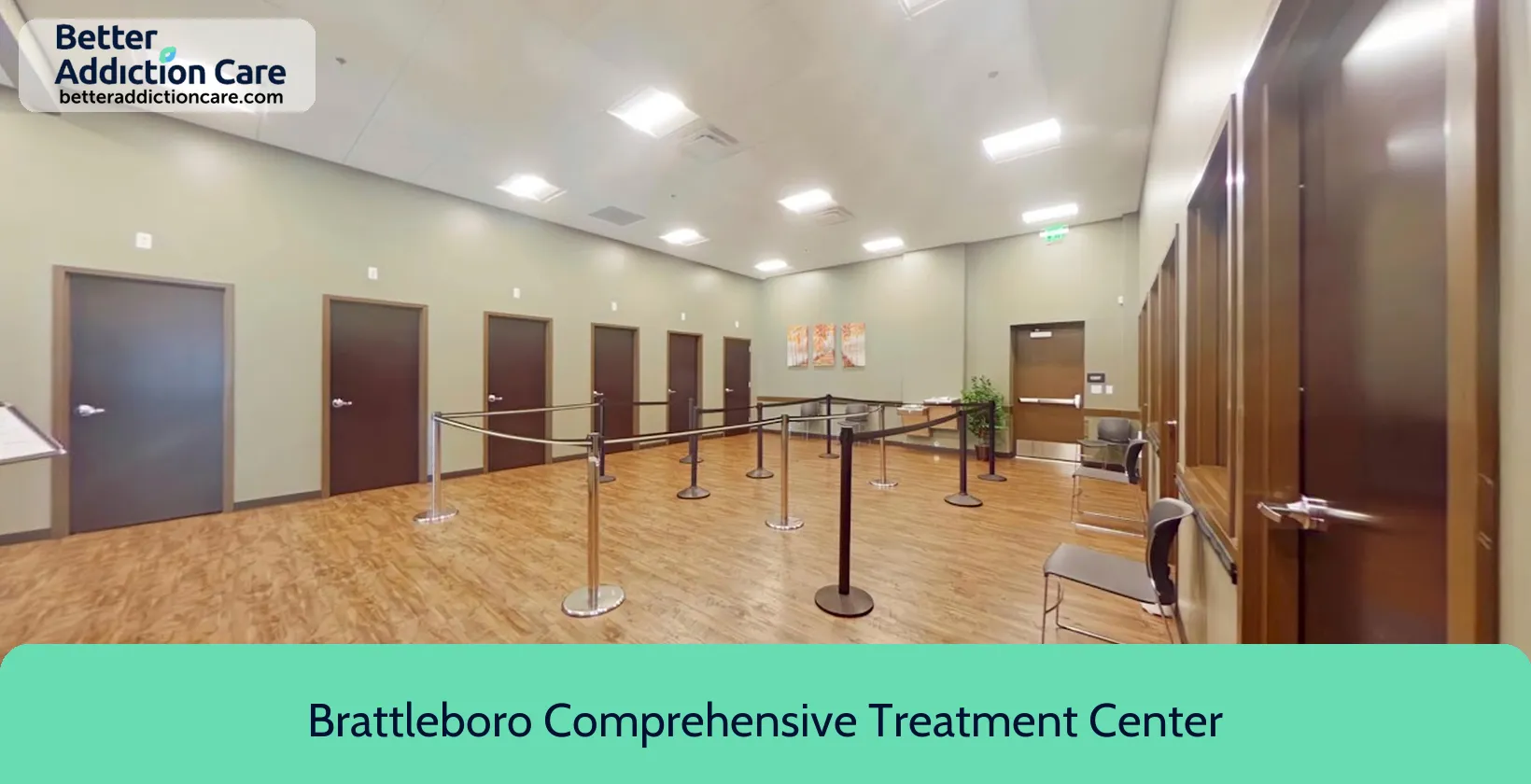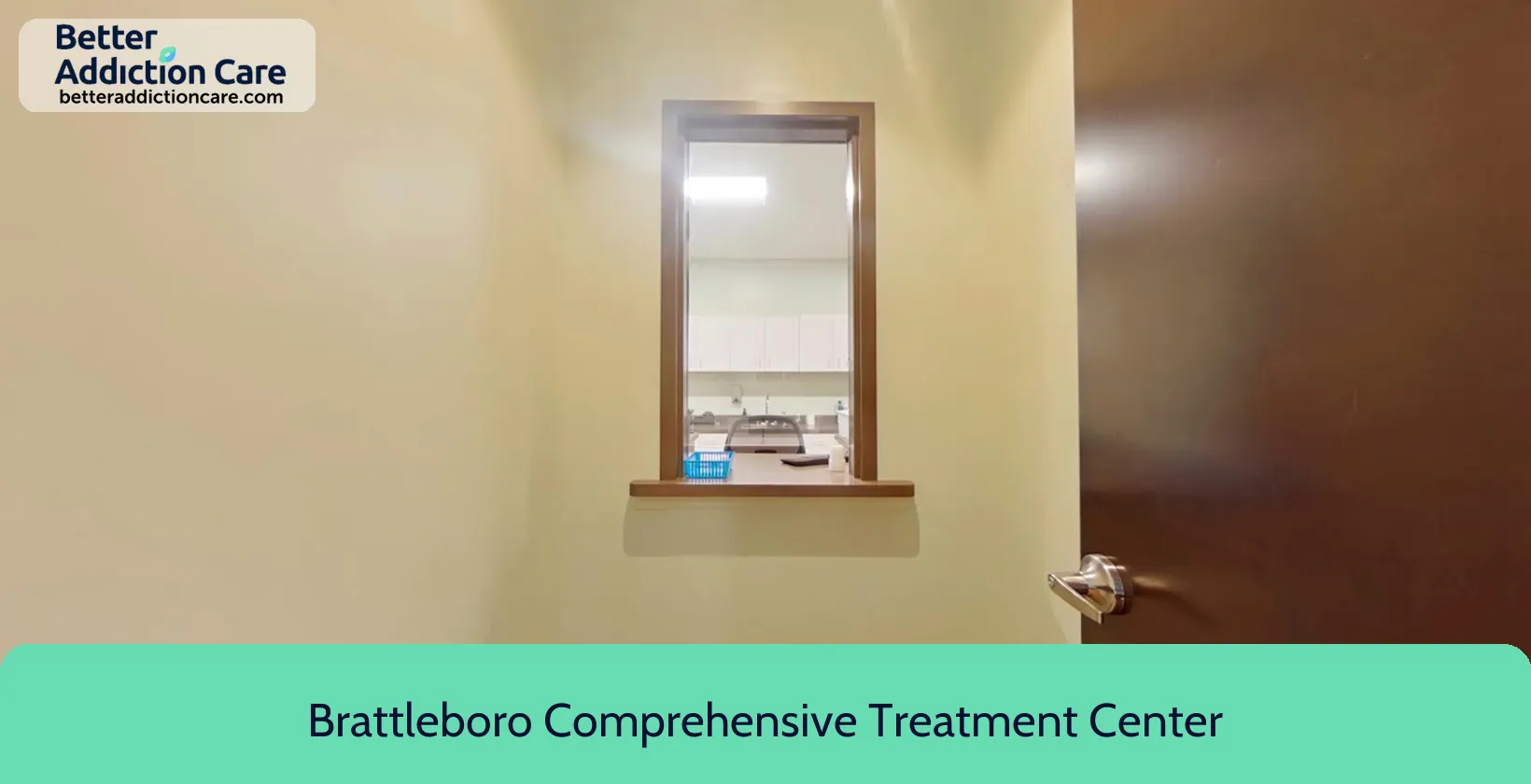Brattleboro Comprehensive Treatment Center
Overview
Brattleboro Comprehensive Treatment Center is an accredited substance abuse treatment center that provides outpatient detoxification, for men and women between 18 and 65+ years of age. As part of their special programs, Brattleboro Comprehensive Treatment Center treats clients with co-occurring mental and substance use disorders, criminal justice (other than dui/dwi)/forensic clients, and pregnant/postpartum women. To help patients achieve sobriety, Brattleboro Comprehensive Treatment Center provides treats opioids detoxification and medication routinely used during detoxification.. Afterward, patients receive cognitive behavioral therapy, telemedicine/telehealth therapy, and substance use disorder counseling during treatment. Brattleboro Comprehensive Treatment Center is located in Brattleboro, Vermont, providing treatment for people in Windham County, accepting cash or self-payment, medicaid, and medicare.
Brattleboro Comprehensive Treatment Center at a Glance
Payment Options
- Cash or self-payment
- Medicaid
- Medicare
- State-financed health insurance plan other than Medicaid
- Private health insurance
Assessments
- Screening for tobacco use
- Comprehensive substance use assessment
- Interim services for clients
- Outreach to persons in the community
- Screening for mental disorders
Age Groups
- Young adults
- Adults
- Seniors
Ancillary Services
- Case management service
- Suicide prevention services
- Child care for client's children
- Domestic violence services, including family or partner
- Early intervention for HIV
Highlights About Brattleboro Comprehensive Treatment Center
7.52/10
With an overall rating of 7.52/10, this facility has following balanced range of services. Alcohol Rehabilitation: 8.00/10, Drug Rehab and Detox: 7.85/10, Insurance and Payments: 6.67/10, Treatment Options: 7.58/10.-
Alcohol Rehabilitation 8.00
-
Drug Rehab and Detox 7.85
-
Treatment Options 7.58
-
Insurance and Payments 6.67
Accreditations
State department of health:

Government agencies issue State Licenses, granting permission to rehabilitation organizations to conduct their business operations lawfully within specific geographic regions. Generally, the particular rehabilitation programs offered by a facility and its physical location dictate the necessary licenses needed for legal operation.
Drug Enforcement Agency (DEA):
DEA accreditation refers to the process by which a law enforcement agency is recognized by the Drug Enforcement Agency (DEA) as having met specific training, operational, and resource requirements necessary to participate in DEA-led drug enforcement efforts. This accreditation allows the agency to perform DEA-related tasks such as conducting investigations, executing federal search warrants, and participating in joint task forces.
Commission on Accreditation of Rehabilitation Facilities (CARF):

CARF accreditation is a globally recognized certification for rehabilitation and human service organizations. It signifies that an organization meets high-quality standards and is committed to providing top-level care. Achieving CARF accreditation involves a rigorous evaluation process, including on-site surveys. This accreditation enhances an organization's reputation, instills trust in clients and funders, and encourages ongoing excellence in the field.
Registration: 214790
SAMHSA certification for opioid treatment program (OTP):
SAMHSA's Opioid Treatment Programs (OTPs) accreditation is a rigorous recognition process that signifies an OTP's commitment to providing high-quality care for individuals dealing with opioid use disorders. It assures patients, families, and the community that the program adheres to evidence-based practices, employs qualified staff, and maintains a safe treatment environment. This accreditation is a symbol of quality and accountability, offering confidence in the program's ability to support individuals on their path to recovery from opioid addiction.
Treatment At Brattleboro Comprehensive Treatment Center
Treatment Conditions
- Alcoholism
- Mental health treatment
- Substance use treatment
- Co-occurring Disorders
Care Levels
- Outpatient
- Outpatient detoxification
- Outpatient methadone/buprenorphine or naltrexone treatment
- Regular outpatient treatment
- Aftercare
Treatment Modalities
- Cognitive behavioral therapy
- Telemedicine/telehealth therapy
- Substance use disorder counseling
- Trauma-related counseling
- Smoking/vaping/tobacco cessation counseling
Ancillary Services
Languages
- Sign language services for the deaf and hard of hearing
Additional Services
- Pharmacotherapies administered during treatment
- Mentoring/peer support
- Breathalyzer or blood alcohol testing
Special Programs
- Clients with co-occurring mental and substance use disorders
- Criminal justice (other than DUI/DWI)/Forensic clients
- Pregnant/postpartum women
- Clients who have experienced trauma
- Clients who have experienced sexual abuse
Get Help Now
Common Questions About Brattleboro Comprehensive Treatment Center
Contact Information
Other Facilities in Brattleboro

6.86

7.77

6.85
Browse rehab centers near Brattleboro and in other cities across Vermont
DISCLAIMER: The facility name, logo and brand are the property and registered trademarks of Brattleboro CBOC, and are being used for identification and informational purposes only. Use of these names, logos and brands shall not imply endorsement. BetterAddictionCare.com is not affiliated with or sponsored by Brattleboro CBOC.
